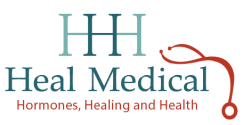What is melatonin?
Melatonin is a hormone that is derived from the amino acid tryptophan, which is a precursor for the neurotransmitter serotonin, which is catalyzed into melatonin. It is a small molecule that, unlike other hormones, does not need a receptor, and affects all organ systems due to its ability to permeate almost every cell in the body. Most well known is the role melatonin plays in our circadian rhythms. Melatonin rises with darkness and promotes deep, restful sleep. Travelers frequently use it to treat jet lag.
Melatonin benefits
In addition to its role as a sleep aid, melatonin has been found to be beneficial as a mood enhancer, a cancer inhibitor, an immune system booster, and as treatment for hypertension and migraine headaches. It has also been shown to be a very powerful anti oxidant. A study in 2005 in laboratory mice showed that nighttime exposure to artificial light stimulated the growth of human breast tumors by suppressing the level of melatonin.
More recent studies in 2010 support this and further link nighttime artificial light to increased risk for prostate cancer, breast cancer, depression, and obesity. This is a possible explanation for the increase in breast cancer in night shift workers and for the rise in breast cancer incidence in industrialized countries.
Healthy aging and disease prevention
The anti aging properties of melatonin are extolled in, “The Melatonin Miracle”, by Walter Pierpaoli. Melatonin increases human growth hormone and helps protect your mitochondria. The mitochondria are the “energy machines” of the cell and mitochondrial damage is associated with increased risk for Parkinson’s disease, Alzheimer’s and other dementias as well as heart failure and muscle weakness. Studies in mice have been shown to reverse changes in the aging brain.
A number of studies support the use of melatonin not only as a sleep aid, but also as an immune booster in immunosuppressed conditions, a cancer fighter through its anti oxidant and immune enhancing properties, and a new tool in the treatment of cardiovascular disease. Melatonin is thought to play a protective role in the development of the neurologic diseases, Parkinson’s, Alzheimer’s and Huntington’s disease.
So, lets pull the plug on those night-lights, draw the curtains, and make the room as dark as possible to support our natural melatonin production. Wearing a night mask may help you sleep, but the body is not fooled as every cell in your body reacts to the light. It needs to be dark. Consider low dose melatonin supplements if sleep is an issue before you reach for the pharmaceuticals. If you have cancer or are at high risk for cancer, you may need to supplement with higher doses. As always, consult a knowledgeable healthcare practitioner before you embark on a supplement regimen.
“How to Achieve Healthy Aging”, by Neal Rouzier, is a source for much of the above material.




Great article! I have heard about melatonin for sleep but not as an anti-oxidant. Do you have any suggestions about artificial light? Thanks!
Dear Meaghan,
We were originally designed to get up with the dawning of light and go to sleep when it got dark. With our modern society, we can choose when to have day and when to have night and for some, the lights never go out, (ever been to Vegas?) This interferes with our natural circadian rhythms and can lead to increased risk for depression, sleep disorders, and a host of other chronic disease including cancer. As far as artificial light goes, any light at night can interfere with melatonin production. Sunlight is of course necessary for vitamin D production and people from norther latitudes have an increased incidence of MS, (multiple sclerosis), post menopausal cancers, chron’s disease, and osteporosis. So, sunlight is best, and keep it dark at night to maximize your melatonin production, supplement with melatonin particularly if you are a shift worker or have an interruption in your normal circadian rhythms. I think some people think that melatonin is primarily for sleep, but its real benefits are as an anti oxidant and immune modulator so even if it does not put you to sleep, you are deriving benefit.
Reallyfascinatingposting. Will youpost a follow up? Could be really good.